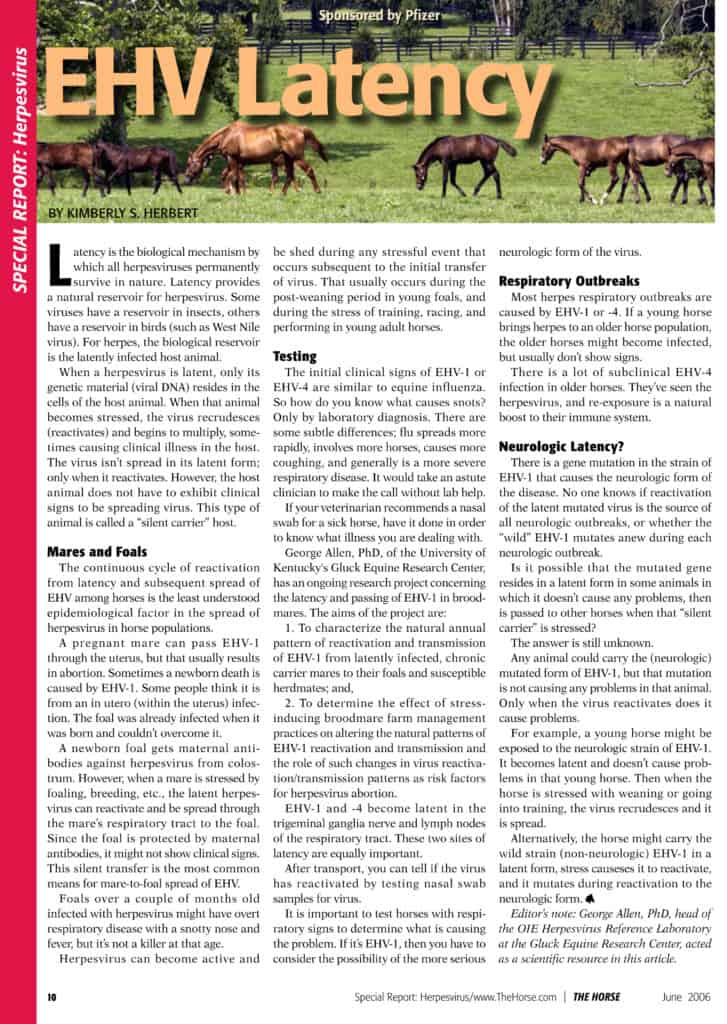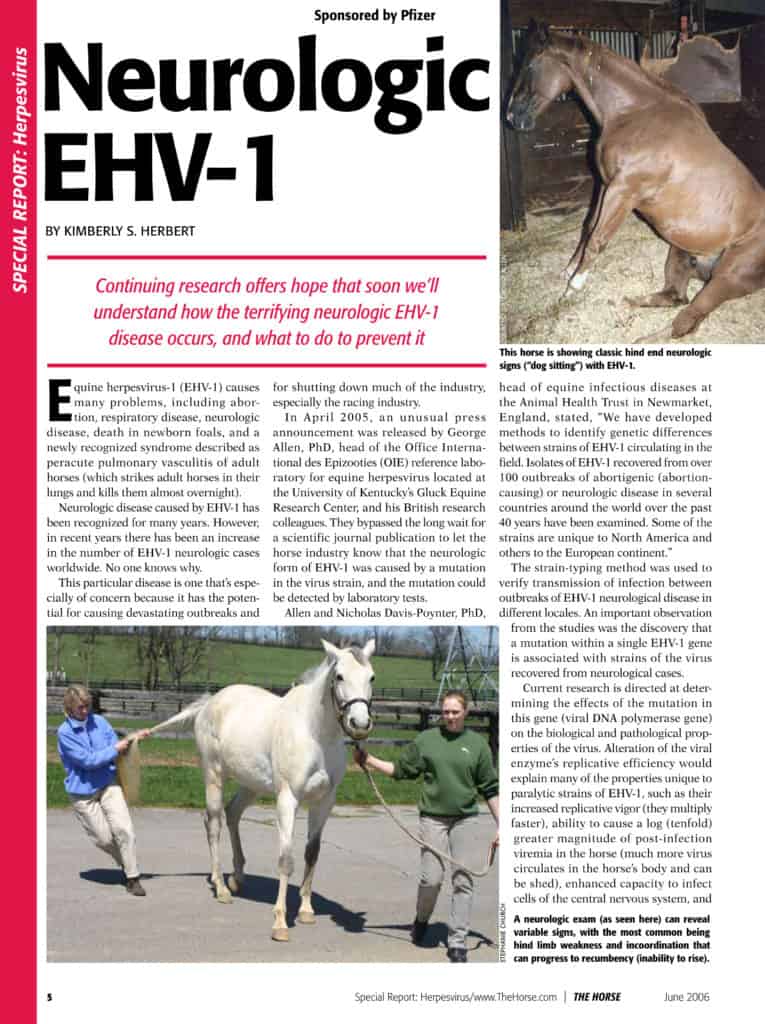Quick Detection of Contagious Equine Metritis
French researchers report they have developed a rapid, effective test for detecting the bacterium that causes the venereal disease contagious equine metritis (CEM). Taylorella equigenitalis is a Gram-negative bacterium that’s responsibl

















